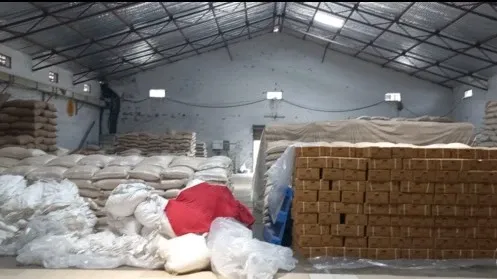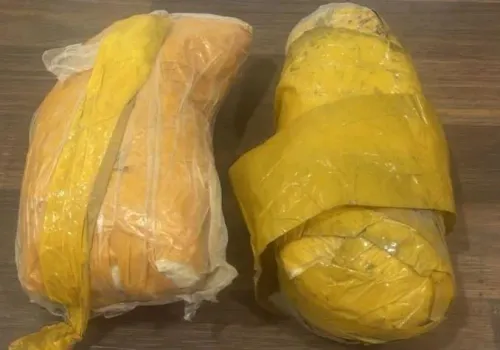How is the Israel-Iran Conflict Affecting India's Rice Exporters?

Synopsis
Key Takeaways
- The Israel-Iran conflict has severely disrupted rice exports to Iran.
- Exporters face significant financial risks due to stranded shipments.
- India's rice exports to Iran account for a substantial portion of its basmati rice trade.
- Permits for rice exports to Iran are time-sensitive, adding pressure on exporters.
- A prolonged conflict could escalate economic challenges for exporters.
New Delhi, June 20 (NationPress) The ongoing tensions between Israel and Iran are having a profound effect on India’s rice export sector, with shipments to Iran nearly ceasing, according to rice exporters on Friday.
In an interview with IANS, rice exporter Narendra Miglani commented: "The conflict between Iran and Israel is impacting Indian rice exporters significantly."
"As a result of the hostilities, rice exports destined for Iran have halted, with approximately 100,000 metric tonnes of rice from Haryana, Punjab, Delhi, and Uttar Pradesh currently immobilized at ports," he elaborated.
Miglani noted that India primarily exports basmati rice to Iran, with Saudi Arabia and Iraq following as secondary markets.
He also highlighted that the conflict has caused a decline of about Rs 1,200 per quintal in rice prices for export.
Exporters are increasingly worried about payments being delayed in Iran and rice containers that are stranded at port facilities.
Since rice shipments to Iran are uninsured, exporters are now facing the risk of significant losses if the rice deteriorates.
Additionally, Miglani emphasized that export permits for Iran are only valid for a duration of four months.
If the rice does not arrive in Iran within this period, the permits become void, leading to further financial losses for exporters.
A recent analysis from Crisil indicated that India’s direct trade with both Israel and Iran constitutes less than one percent of its total trade.
While Iran predominantly imports basmati rice from India, its trade with Israel encompasses a broader range of products, including fertilizers, diamonds, and electrical equipment.
According to the report, together, Iran and Israel represent nearly 14 percent of India’s basmati rice exports in the current fiscal year (FY25).
However, the report cautioned that a prolonged conflict could exacerbate the situation, particularly by driving up oil prices and disrupting supply chains, potentially leading to heightened inflation.









